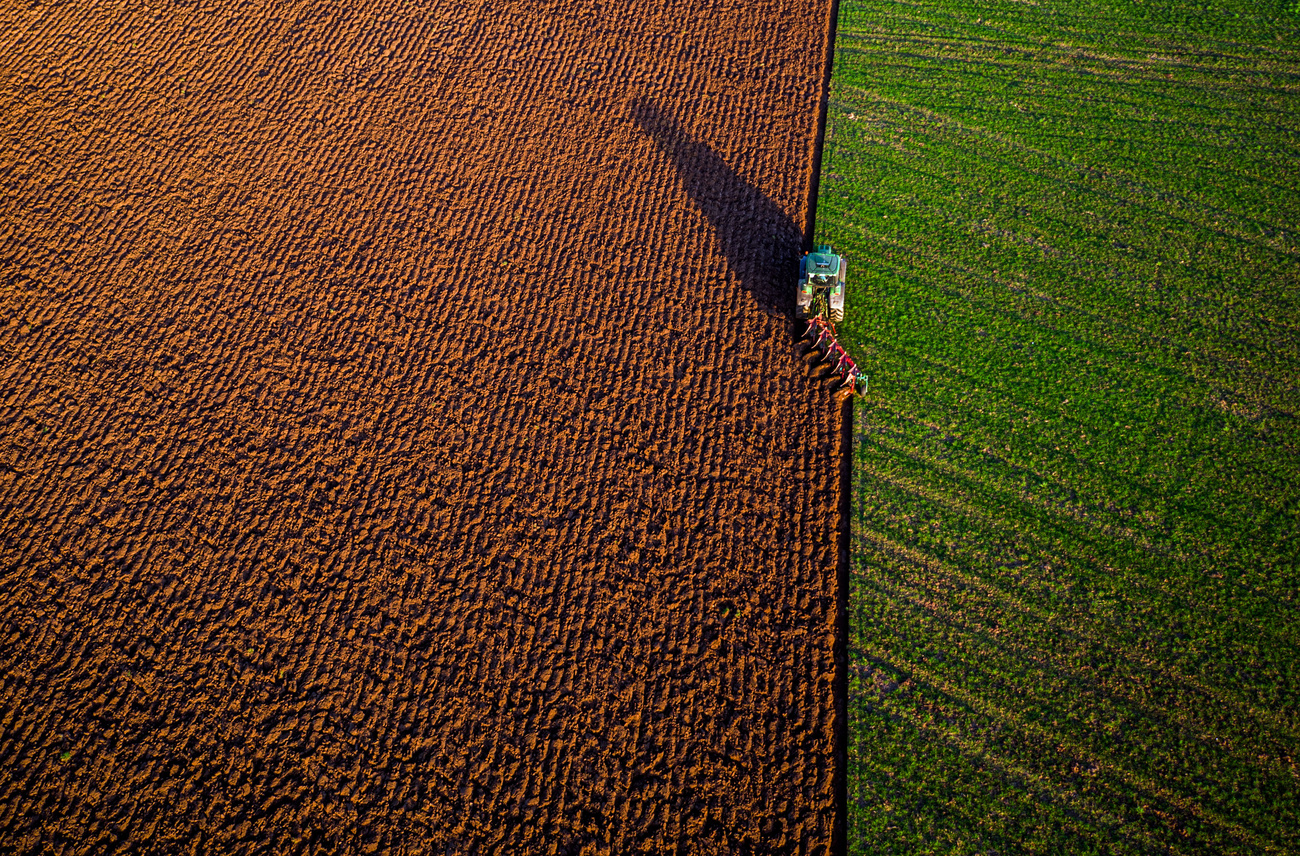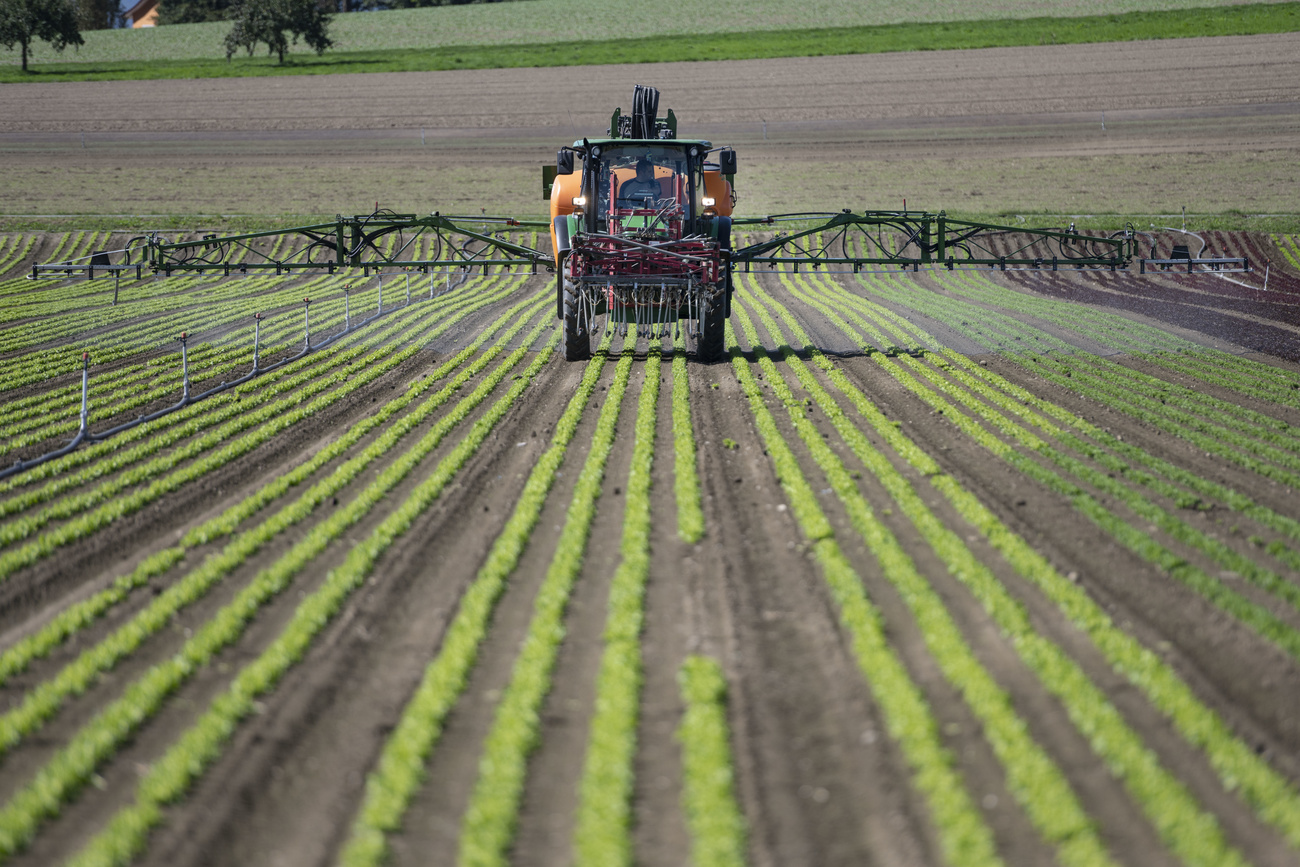
Swiss trial shows organic farming is 85% as productive as conventional agriculture

This is shown by the results of a globally unique open-air trial that has been running for 47 years in Therwil in the Swiss canton of Basel-City.
In the so-called DOK trial, the Research Institute of Organic Agriculture (FiBL) and the federal agricultural research centre Agroscope have been comparing organic and conventional farming methods. In a press release issued on Wednesday, the institutions described the trial as the “Methuselah of field trials”.
+Get the most important news from Switzerland in your inbox
The trials showed that, on average, organic farms achieve around 85% of the yields of conventional systems. However, they only use around 65% of the nitrogen fertilisers and around 8% of the pesticides.
The differences in yield are strongly dependent on the respective crop: while the yields of soy are the same when grown organically instead of conventionally, there are greater losses in organic farming for crops such as wheat and potatoes.

More
Is 100% organic farming a revolution too far?
In addition, the lower use of fertilisers and pesticides leads to greater fluctuations in yields. According to FiBL and Agroscope, yield stability is therefore lower with organic farming. On the other hand, the risk of pollutants contaminating water, food and animal feed is significantly lower.
Better for the climate per area
According to the study, a key advantage of organic systems is their impact on the climate. The reduced use of nitrogen fertilisers in organic soils leads to significantly lower nitrous oxide emissions per area. However, due to the lower organic yields, the nitrous oxide emissions per product unit are similar to those of conventional systems, according to the press release. However, as organic soils accumulate more carbon, the climate impact of the soils is further improved.

More
Pesticide-free but not organic: Swiss offer alternative to wean agriculture off chemicals
According to FiBL and Agroscope, the DOK trial, which has been running since 1978, has so far produced more than 140 peer-reviewed scientific publications as well as numerous master’s and doctoral theses.
Adapted from German by DeepL/ac
We select the most relevant news for an international audience and use automatic translation tools to translate them into English. A journalist then reviews the translation for clarity and accuracy before publication.
Providing you with automatically translated news gives us the time to write more in-depth articles. The news stories we select have been written and carefully fact-checked by an external editorial team from news agencies such as Bloomberg or Keystone.
If you have any questions about how we work, write to us at english@swissinfo.ch

In compliance with the JTI standards
More: SWI swissinfo.ch certified by the Journalism Trust Initiative






























You can find an overview of ongoing debates with our journalists here . Please join us!
If you want to start a conversation about a topic raised in this article or want to report factual errors, email us at english@swissinfo.ch.